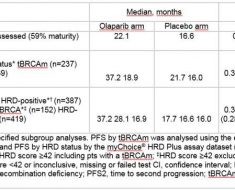Rheumatoid arthritis commonly affects women of childbearing age, and pregnancy or family planning is a valid concern for many patients.
This is an important issue, as pregnancy can influence the immune system and the symptoms of rheumatoid arthritis, and some of the drugs used in the treatment of the disease can lead to birth defects or other complications in pregnancy.
Family Planning and Contraception
Disease-modifying anti-rheumatic drugs (DMARDs) such as leflunomide and methotrexate are often used in the treatment of rheumatoid arthritis. Patients should be aware of potential teratogenicity and associated adverse effects of these medications, such as the potential to cause birth defects if a patient becomes pregnant.
Therefore, it is important to plan ahead, and any desire to become pregnant should be discussed between the patient and health practitioner. This is particularly evident because many of these medications have a long half-life and need to be ceased several months prior to planned conception.
Women of childbearing age who are taking medications linked birth defects should take appropriate contraceptive precautions to avoid becoming pregnant. In many cases, the oral contraceptive pill is recommended for this reason.
Conceiving
A female patient with rheumatoid arthritis is not likely to have more difficulty conceiving than the general female population. Likewise, the risk of fetal loss and genetic abnormalities is comparable between rheumatoid arthritis patients and other pregnant women.
As is recommended for all pregnancies, folic acid is beneficial to decrease the risk of birth defects such as spina bifida. However, this is of utmost importance for patients who have been treated with medications such as methotrexate, who are more likely to have a depleted supply.
During Pregnancy
The majority of patients with rheumatoid arthritis who become pregnant note an improvement in the activity of the disease, although complete remission is seen in only a few patients. A few weeks following the delivery of the baby, women who noticed an improvement in symptoms during the pregnancy will likely experience worsening of symptoms to the pre-pregnancy state.
Pregnant women with rheumatoid arthritis are at an increased risk of:
- Preterm birth
- Preeclampsia
- Fetal growth restriction
Rheumatoid arthritis pain during pregnancy should ideally be relieved with the use of non-pharmacological techniques, such as paraffin baths, modified physical activity, splinting and hot or cold packs.
Some of the drugs used to treat rheumatoid arthritis may sometimes be continued throughout pregnancy, but none are considered to be completely safe during pregnancy.
Rheumatoid Arthritis Medications in Pregnancy
Non-steroidal inflammatory drugs (NSAIDs): may be used with caution in early pregnancy but contraindicated in the third trimester as there is an associated increased risk of fetal pulmonary hypertension.
Corticosteroids: relatively safe in pregnancy in low doses but may increase the risk of maternal hypertension, edema, gestational diabetes, osteoporosis and low birth weight babies. There may also be an increased risk of cleft palate if the fetus is exposed to corticosteroids in early pregnancy. Hydrocortisone, cortisone and prednisolone are the least likely to cross the placenta to affect the fetus and are, therefore, the drugs of preference to treat maternal symptoms.
Methotrexate: contraindicated in pregnancy (category X) as it has teratogenic effects and is a folic acid antagonist that can cause birth defects, particularly in the first trimester. Both male and female patients should cease methotrexate at least 3 months prior to conceiving.
Leflunomide: contraindicated in pregnancy (category X) as it has teratogenic effects. As it has an active metabolite that can take several years to be eliminated from the body, it should be eliminated with administration of cholestyramine prior to conceiving.
Sulfasalazine: does not appear to increase fetal morbidity or mortality and may be used with caution in pregnancy.
Azathioprine: may sometimes be used with caution in pregnancy if benefits outweigh risks, as fetal liver lacks enzymes to metabolize drug to the teratogenic metabolite.
Hydroxychloroquine: may sometimes be used with caution in pregnancy.
TNF-alpha antagonists (e.g. adalimumab, etanercept, infliximab): does not appear to increase fetal morbidity or mortality and may be used with caution in pregnancy.
Anakira: does not appear to increase fetal morbidity or mortality and may be used with caution in pregnancy.
Abatacept: able to cross the placenta but no evidence of birth defects, according to animal studies.
References
- http://www.ncbi.nlm.nih.gov/pmc/articles/PMC4206648/
- http://www.arthritis.org/living-with-arthritis/life-stages/pregnancy-family/pregnancy-and-rheumatoid-arthritis.php
- http://www.nras.org.uk/rheumatoid-arthritis-pregnancy
- http://emedicine.medscape.com/article/335186-overview#showall
- http://www.hopkinsarthritis.org/arthritis-news/pregnancy-concerns-among-women-with-rheumatoid-arthirits-and-lupus/
Further Reading
- All Rheumatoid Arthritis Content
- What is Rheumatoid Arthritis?
- What Causes Rheumatoid Arthritis?
- Rheumatoid Arthritis Symptoms
- Rheumatoid Arthritis Diagnosis
Last Updated: Aug 23, 2018

Written by
Yolanda Smith
Yolanda graduated with a Bachelor of Pharmacy at the University of South Australia and has experience working in both Australia and Italy. She is passionate about how medicine, diet and lifestyle affect our health and enjoys helping people understand this. In her spare time she loves to explore the world and learn about new cultures and languages.
Source: Read Full Article





